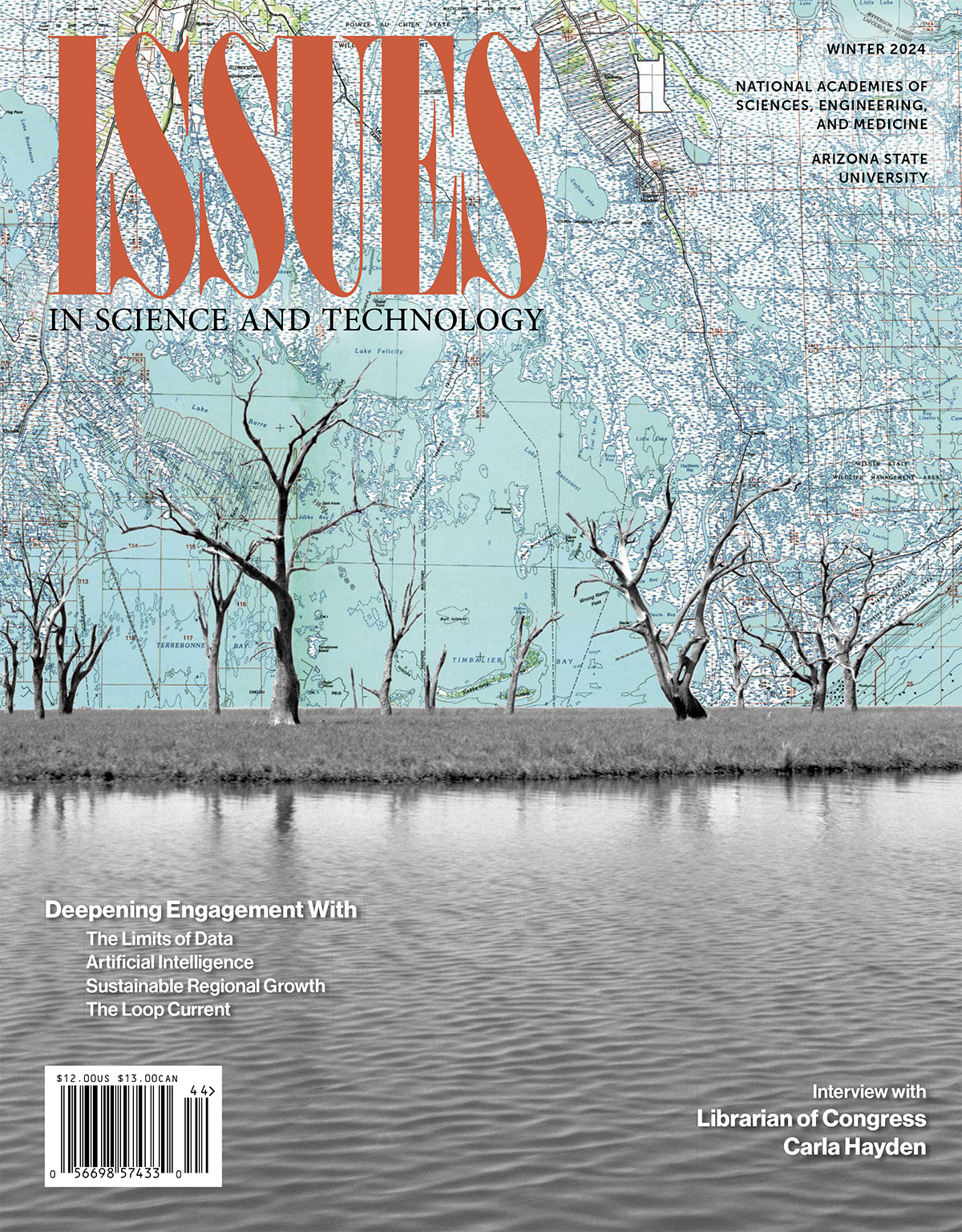Monique Verdin, “Ghost Forest : Pointe-aux-Chênes : Lost Treasure Map” (2022), digital assemblage. Photograph taken in 2011; United States Geological Survey map, Terrebonne Bay, 1983.
An AI Society
Artificial intelligence is reshaping society, but human forces shape AI. Getting governance wrong could mean narrowing cultural narratives, de-incentivizing creativity, and exploiting workers. In these 11 essays, social scientists and humanities experts explore how to harness the interaction between AI and society, revealing urgent avenues for research and policy.

Generative AI Is a Crisis for Copyright Law
How does our understanding of the value of human creativity change when it is increasingly mediated by technology, be it the pen, paintbrush, Photoshop, or DALL-E?
How Generative AI Endangers Cultural Narratives
AI Aids the Pretense of Military “Precision”
Protect Information Systems to Preserve Attention

Ground Truths Are Human Constructions

To Reckon with Generative AI, Make It a Public Problem
The portrayal of AI’s history is usually one of progress, where constellations of algorithms attain humanlike general intelligence and creativity. But that narrative might be more accurately inverted with a shrinking definition of intelligence that excludes many human capabilities.
How AI Sets Limits for Human Aspiration
History Can Help Us Chart AI’s Future
AI Lacks Ethic Checks for Human Experimentation
Needed: Ways for Citizens to Sound the Alarm About AI’s Societal Impacts

The Question Isn’t Asset or Threat; It’s Oversight
These articles arose from a working group on AI and Justice convened by Kate Crawford at the École Normale Supérieure. The collection appeared in the Winter 2024 Issues.

Art by Amy Karle.
